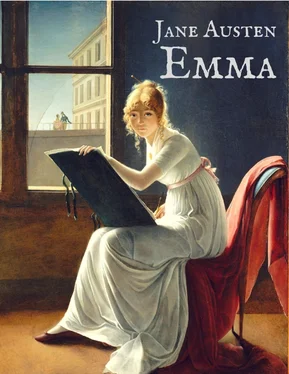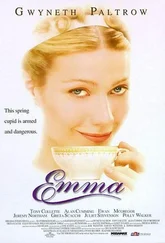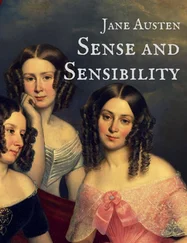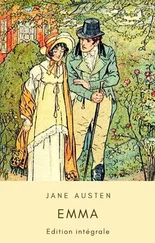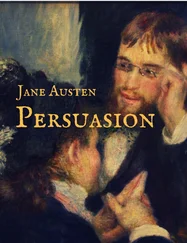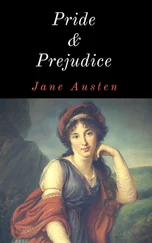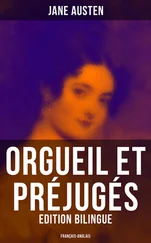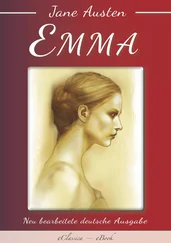“How often we shall be going to see them, and they coming to see us!—We shall be always meeting! We must begin; we must go and pay wedding visit very soon.”
“My dear, how am I to get so far? Randalls is such a distance. I could not walk half so far.”
“No, papa, nobody thought of your walking. We must go in the carriage, to be sure.”
“The carriage! But James will not like to put the horses to for such a little way;—and where are the poor horses to be while we are paying our visit?”
“They are to be put into Mr. Weston's stable, papa. You know we have settled all that already. We talked it all over with Mr. Weston last night. And as for James, you may be very sure he will always like going to Randalls, because of his daughter's being housemaid there. I only doubt whether he will ever take us anywhere else. That was your doing, papa. You got Hannah that good place. Nobody thought of Hannah till you mentioned her—James is so obliged to you!”
“I am very glad I did think of her. It was very lucky, for I would not have had poor James think himself slighted upon any account; and I am sure she will make a very good servant: she is a civil, pretty-spoken girl; I have a great opinion of her. Whenever I see her, she always curtseys and asks me how I do, in a very pretty manner; and when you have had her here to do needlework, I observe she always turns the lock of the door the right way and never bangs it. I am sure she will be an excellent servant; and it will be a great comfort to poor Miss Taylor to have somebody about her that she is used to see. Whenever James goes over to see his daughter, you know, she will be hearing of us. He will be able to tell her how we all are.”
Emma spared no exertions to maintain this happier flow of ideas, and hoped, by the help of backgammon, to get her father tolerably through the evening, and be attacked by no regrets but her own. The backgammon-table was placed; but a visitor immediately afterwards walked in and made it unnecessary.
Mr. Knightley, a sensible man about seven or eight-and-thirty, was not only a very old and intimate friend of the family, but particularly connected with it, as the elder brother of Isabella's husband. He lived about a mile from Highbury, was a frequent visitor, and always welcome, and at this time more welcome than usual, as coming directly from their mutual connexions in London. He had returned to a late dinner, after some days' absence, and now walked up to Hartfield to say that all were well in Brunswick Square. It was a happy circumstance, and animated Mr. Woodhouse for some time. Mr. Knightley had a cheerful manner, which always did him good; and his many inquiries after “poor Isabella” and her children were answered most satisfactorily. When this was over, Mr. Woodhouse gratefully observed, “It is very kind of you, Mr. Knightley, to come out at this late hour to call upon us. I am afraid you must have had a shocking walk.”
“Not at all, sir. It is a beautiful moonlight night; and so mild that I must draw back from your great fire.”
“But you must have found it very damp and dirty. I wish you may not catch cold.”
“Dirty, sir! Look at my shoes. Not a speck on them.”
“Well! that is quite surprising, for we have had a vast deal of rain here. It rained dreadfully hard for half an hour while we were at breakfast. I wanted them to put off the wedding.”
“By the bye—I have not wished you joy. Being pretty well aware of what sort of joy you must both be feeling, I have been in no hurry with my congratulations; but I hope it all went off tolerably well. How did you all behave? Who cried most?”
“Ah! poor Miss Taylor! 'Tis a sad business.”
“Poor Mr. and Miss Woodhouse, if you please; but I cannot possibly say 'poor Miss Taylor.' I have a great regard for you and Emma; but when it comes to the question of dependence or independence!—At any rate, it must be better to have only one to please than two.”
“Especially when one of those two is such a fanciful, troublesome creature!” said Emma playfully. “That is what you have in your head, I know—and what you would certainly say if my father were not by.”
“I believe it is very true, my dear, indeed,” said Mr. Woodhouse, with a sigh. “I am afraid I am sometimes very fanciful and troublesome.”
“My dearest papa! You do not think I could mean you , or suppose Mr. Knightley to mean you . What a horrible idea! Oh no! I meant only myself. Mr. Knightley loves to find fault with me, you know—in a joke—it is all a joke. We always say what we like to one another.”
Mr. Knightley, in fact, was one of the few people who could see faults in Emma Woodhouse, and the only one who ever told her of them: and though this was not particularly agreeable to Emma herself, she knew it would be so much less so to her father, that she would not have him really suspect such a circumstance as her not being thought perfect by every body.
“Emma knows I never flatter her,” said Mr. Knightley, “but I meant no reflection on any body. Miss Taylor has been used to have two persons to please; she will now have but one. The chances are that she must be a gainer.”
“Well,” said Emma, willing to let it pass—“you want to hear about the wedding; and I shall be happy to tell you, for we all behaved charmingly. Every body was punctual, every body in their best looks: not a tear, and hardly a long face to be seen. Oh no; we all felt that we were going to be only half a mile apart, and were sure of meeting every day.”
“Dear Emma bears every thing so well,” said her father. “But, Mr. Knightley, she is really very sorry to lose poor Miss Taylor, and I am sure she will miss her more than she thinks for.”
Emma turned away her head, divided between tears and smiles. “It is impossible that Emma should not miss such a companion,” said Mr. Knightley. “We should not like her so well as we do, sir, if we could suppose it; but she knows how much the marriage is to Miss Taylor's advantage; she knows how very acceptable it must be, at Miss Taylor's time of life, to be settled in a home of her own, and how important to her to be secure of a comfortable provision, and therefore cannot allow herself to feel so much pain as pleasure. Every friend of Miss Taylor must be glad to have her so happily married.”
“And you have forgotten one matter of joy to me,” said Emma, “and a very considerable one—that I made the match myself. I made the match, you know, four years ago; and to have it take place, and be proved in the right, when so many people said Mr. Weston would never marry again, may comfort me for any thing.”
Mr. Knightley shook his head at her. Her father fondly replied, “Ah! my dear, I wish you would not make matches and foretell things, for whatever you say always comes to pass. Pray do not make any more matches.”
“I promise you to make none for myself, papa; but I must, indeed, for other people. It is the greatest amusement in the world! And after such success, you know!—Every body said that Mr. Weston would never marry again. Oh dear, no! Mr. Weston, who had been a widower so long, and who seemed so perfectly comfortable without a wife, so constantly occupied either in his business in town or among his friends here, always acceptable wherever he went, always cheerful—Mr. Weston need not spend a single evening in the year alone if he did not like it. Oh no! Mr. Weston certainly would never marry again. Some people even talked of a promise to his wife on her deathbed, and others of the son and the uncle not letting him. All manner of solemn nonsense was talked on the subject, but I believed none of it.
“Ever since the day—about four years ago—that Miss Taylor and I met with him in Broadway Lane, when, because it began to drizzle, he darted away with so much gallantry, and borrowed two umbrellas for us from Farmer Mitchell's, I made up my mind on the subject. I planned the match from that hour; and when such success has blessed me in this instance, dear papa, you cannot think that I shall leave off match-making.”
Читать дальше
